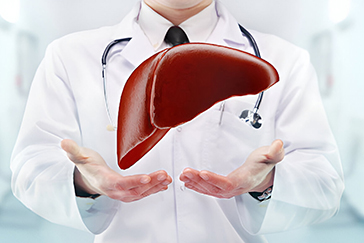 Book Appt.
Book Appt.
 Call Now
Call Now


Hepatitis C, a viral infection of the liver, poses a global health challenge, affecting millions of people worldwide. It is a leading cause of liver-related morbidity and mortality. Understanding the intricacies of this disease, from its causes to its treatment options, is paramount in combating its impact on public health.
Causes and Transmission
Hepatitis C is caused by the hepatitis C virus (HCV), a bloodborne pathogen. The primary modes of transmission include sharing needles or syringes among intravenous drug users, receiving contaminated blood transfusions or organ transplants before widespread screening, and, less commonly, from mother to child during childbirth. Additionally, healthcare workers may be at risk of infection through accidental needlesticks or exposure to infected blood.
In rare cases, HCV can be transmitted through unprotected sexual intercourse, although the risk is lower compared to other sexually transmitted infections. It is important to note that casual contact, such as hugging, kissing, or sharing utensils, does not typically lead to transmission of the virus.
Symptoms and Progression
One of the challenges in managing hepatitis C lies in its often asymptomatic nature, especially in the early stages. Many individuals may not experience noticeable symptoms for years or even decades after initial infection. When symptoms do manifest, they can be nonspecific, including fatigue, joint pain, and abdominal discomfort. As the disease progresses, more severe symptoms such as jaundice (yellowing of the skin and eyes), dark urine, and easy bruising may develop, signaling advanced liver damage.
Chronic Hepatitis C and Complications
A significant proportion of individuals infected with HCV develop chronic hepatitis C. Over time, chronic inflammation can lead to liver fibrosis, and scarring of liver tissue. If left untreated, this can progress to cirrhosis, a condition characterized by extensive liver scarring and impaired function. Cirrhosis increases the risk of liver failure and hepatocellular carcinoma, a form of liver cancer. Regular monitoring and timely intervention are crucial in preventing these severe complications.
Diagnosis and Testing
Accurate diagnosis of hepatitis C involves a combination of blood tests. The initial screening test detects the presence of antibodies against HCV, indicating prior exposure. If this test is positive, a follow-up test to detect the virus itself (HCV RNA) confirms active infection. Additional tests may be performed to determine the specific genotype of the virus, which can influence treatment decisions.
Treatment and Management
Recent advances in medical science have revolutionized the treatment of hepatitis C. Direct-acting antiviral medications, taken orally, have proven highly effective in eliminating the virus from the body. These drugs target specific steps in the viral replication process, leading to high cure rates, often exceeding 95%. Treatment duration and specific medications vary depending on factors such as genotype, liver function, and prior treatment history.
Prevention and Public Health Strategies
Prevention of hepatitis C revolves around education, harm reduction, and widespread access to testing and treatment. Encouraging safe injection practices, expanding access to clean needles, and implementing routine screening in high-risk populations are crucial steps. Additionally, rigorous screening of donated blood and organs has greatly reduced the risk of transmission through blood transfusions and transplants.
Conclusion
Hepatitis C presents a significant global health challenge, but advances in understanding and treatment have paved the way for more optimistic outcomes. Early detection, coupled with the advent of highly effective antiviral medications, offers hope for the millions affected by this virus. Through continued research, education, and access to care, we can work towards a future free from the burden of hepatitis C.
SHALBY Sanar International Hospitals provides extensive medical procedures backed up with our state-of-the-art technology and a team of highly qualified & experienced clinical experts.
Our doctors pen down their research findings and experiences from time to time. Their words provide deep insight into the latest techniques, technologies and other advancements in healthcare. It provides expert answers to all kinds of health questions for real-life issues.
VIEW ALL




Since the day of its foundation, SHALBY Sanar International Hospitals is committed to provide comprehensive healthcare services. It regularly organizes awareness programs in its premises and encourages outdoor healthcare activities and camps with an intent to put focus on preventive healthcare.
VIEW ALL